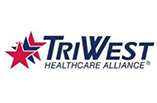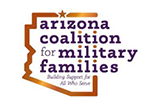
Beyond a Label - Embracing Comprehensive Care for Our Military Community
Effective support for service members, veterans, and their families extends far beyond a ‘military-friendly’ label. It requires a deep, nuanced understanding of the unique challenges and needs of our military community. Our organization and stakeholders are guided by our meticulously crafted Guidelines for Care, developed through extensive input from service members, veterans, and their family members across all branches and components. These guidelines, enriched by contributions from key military, government, and community stakeholders, offer a holistic framework for genuinely understanding and addressing the needs of individuals and families with military backgrounds or affiliations.
The term ‘military-friendly’ has become a ubiquitous label, often used more for its marketing value than as a descriptor of an organization’s true capacity to serve the military community. Without depth and substance, ‘military-friendly’ can remain merely a label, lacking the robust strategies and understanding necessary to address the complex needs of service members and veterans. A generic ‘military-friendly’ approach risks overlooking the individualized needs of service members, veterans, and their families, leading to services that are not fully responsive or effective.
The guidelines provide a comprehensive picture of what it means to be equipped to meet the needs of an individual or family with a military background or affiliation and provide organizations with the opportunity to illustrate how they go beyond a military/veteran-friendly label.
Our Guidelines for Care represent a commitment to going beyond labels, providing a comprehensive framework for genuinely understanding and meeting the needs of our military community. Specifically, here are three important ways that the Guidelines for Care are effective and comprehensive.
- Inclusive Development: The guidelines were developed with direct input from a diverse group of Arizona service members, veterans, and their families, ensuring they reflect a wide range of actual experiences and needs.
- Collaboration with Key Stakeholders: Incorporating insights from military, government, and community organizations, the guidelines are enriched with a breadth of perspectives and expertise to ensure that work is carried out in ways that are aligned with our partners. This leads to an effective continuity of care across Arizona.
- Actionable Framework: The guidelines offer practical, actionable steps for stakeholder organizations and community partners to truly equip them to meet the specific needs of individuals and families with military backgrounds.
Our commitment as an organization is to transcend the ‘military-friendly’ label, embodying a deeper, more authentic approach to supporting our military community. The Guidelines for Care are not just a set of principles; they are a living document that directs our actions and commitments. They challenge us and other organizations to illustrate how we are genuinely equipped to meet the unique needs of service members, veterans, and their families. Let us continue to elevate our support beyond mere labels, ensuring that every aspect of our care and service is informed, intentional, and deeply rooted in the real experiences and needs of those we are honored to serve.
Warm regards,
Thomas Winkel
Director, Arizona Coalition for Military Families








